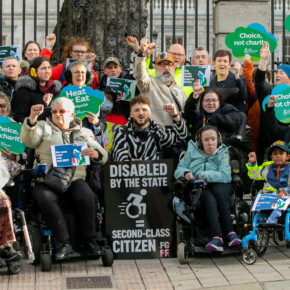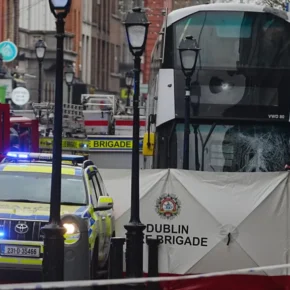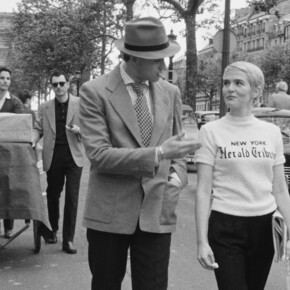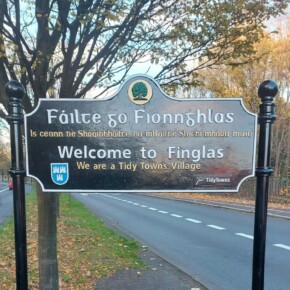Entering the twilight zone with Blanchardstown-Mulhuddart’s transfers
Mike Finnerty 11 Sep 2024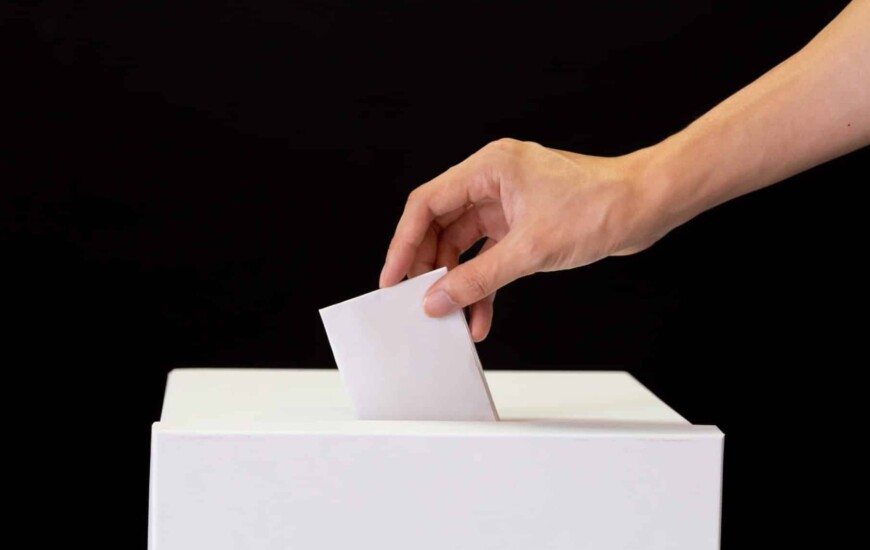
Blanchardstown-Mulhuddart saw the lowest turnout of any Fingal County Council constituency in June’s local elections, with a turnout of 32.5%.
This was actually an improvement compared to 2019, when turnout was 30.2%.
Low turnout does have a tendency to create unpredictable election results however, and Blanchardstown-Mulhudduart is living proof of that.
We glimpsed at the constituency a few weeks ago when discussing broader voter transfer patterns in West Dublin but Blanchardstown-Mulhudduart deserves a proper look under the microscope.
The constituency elected five candidates from five different parties: Breda Hanaphy of Sinn Féin, Mary McCamley of Labour, JK Onwumereh of Fianna Fáil, Patrick Quinlan of the National Party, and John Burtchaell of Solidarity.
With that wide a spread, it’s high time we examine how transfers shaped this esoteric election race.
The battle for top slot was between 2019’s poll-topper Mary McCamley and JK Onwumereh.
McCamley’s share of the vote dropped from 17.8% in 2019 to 11.1% in 2024.
Somehow, this was enough to have her top the poll once again (albeit after being elected on the 11th count).
McCamley started out with 685 first preferences and rode a wave of transfers to end up on the 1,025 she needed to win.
On the way to victory, her greatest transfers were gifted to her from Robbie Loughlin of Aontú (103 votes) and Neil Dowling of the Social Democrats (91 votes).
Labour being able to appeal to voters from a party that split from Sinn Féin over the abortion issue and a party that is pretty much identical to them on social issues is the reason you can never write Labour off in a general election.
We will never know just how much John Burtchaell of Solidarity’s transfers would have gone to McCamley as he was elected without reaching the quota, but it is a fair guess to say there is no love lost between the Labour and Solidarity camps.
Another big boost to McCamley was receiving 60 of a possible 461 preferences from Fianna Fáil’s Lorna Nolan after her seventh round elimination.
Of Nolan’s 461 preferences, her running mate Onwumereh received 167 while Fine Gael’s Steve O’Reilly received 76.
Despite Fine Gael’s success elsewhere on Fingal County Council, Blanchardstown-Mulhuddart was the one constituency they didn’t win in.
Fine Gael attained 11% of first preferences in the constituency in 2019 with now Dublin City Council member Punam Rane ran in the seat, but the vote declined to 9.3% in 2024.
O’Reilly’s loss is made the more perplexing as 9.3% is usually enough to win in a five-seater, but a candidate with 7.4% got elected.
The big story in the consistency was Patrick Quinlan winning the National Party’s first seat at a local level, and it was largely thanks to Aontú transfers.
Quinlan started out with 456 votes but ended up elected with 855.
As the race panned out, it was the 154 votes he received from Aontú’s Robbie Loughlin that got him over the line.
The most transfers O’Reilly ever received was 76 when Nolan of Fianna Fáil was eliminated; Quinlan receiving 154 votes from Aontú was a major determining factor in him winning a seat.
Elsewhere, Quinlan received 137 votes when independent candidate Suzanne Delaney was eliminated.
Those 291 preferences he received from those two candidates were enough to put him in contention and ultimately won him the seat.
Aontú’s candidate Robbie Loughlin actually improved upon the party’s 2019 performance in the seat, winning 7.6% compared to 2019’s 6.1%.
Loughlin received 11 more first preferences than Quinlan, yet it was his transfers that got him elected.
Normally enough to win in a normal election (but as we have established, nothing about this election was normal), Loughlin’s biggest transfers came from Delaney (54) and Dowling (43).
Dowling’s transfers were similarly chaotic; of his 402, 91 went to McCamley and 80 went to Burtchaell.
In third place, with 43 transfers, was Loughlin.
We would love to meet the Social Democrats voters who threw Aontú a preference and see if we can get them on First Dates Ireland.
It it is hard to think of two parties that share more wildly disparate opinions on social issues yet both see each other as a more appealing option than Fine Gael.
Sinn Féin’s Breda Hanaphy and McCamley were the only candidates to reach the quota, so the remaining three candidates were elected solely on transfers.
Hanaphy was the first candidate elected, being elected on count nine and subsequently distributed her surplus of 130.
At that stage of the race, transfers were crucial and were down to fine margins, and Burtchell can be thankful that he received 47 of the 130 votes up for grabs.
McCamley received 28, 23 went to Loughlin, Onwumereh received 12 and Quinlan received 11.
Again, quite an interesting spread of vote distribution: the majority of transfers went to the most left-wing candidate remaining on the ballot, then onto Labour, onto Aontú, and one vote separating Fianna Fáil and the National Party.
Onwumereh steadily received more transfers as the day went on: he started with 665 first preferences and ended up with 1,021 overall, just four off from meeting the quota.
Unsurprisingly, he received the most transfers from his running mate Nolan (167) but also received a boost towards the very end by receiving 64 transfers from Loughlin.
Sinn Féin’s multi-candidate strategy (in this case they ran three) didn’t fully pan out but the data shows that their transfers did have something of an effect on the race.
Louise Kavanagh was the first of Sinn Féin’s candidates to be eliminated and threw 317 votes into the open.
Of those 317, 130 went to Hanaphy and 98 went to Damien Bissett.
That left 89 votes up for grabs, but 51 of those were non-transferrable.
When Bissett was eliminated on count 9, 382 of his 569 votes went to Hanaphy which was enough to get her elected.
44 went to Burtchell, who would then receive an additional 47 in the following round from Hanaphy on top of the 98 he’d already received from Kavanagh.
Burtcahell ended up on 855 votes overall, with 189 of those coming from Sinn Féin’s three candidates.
Perhaps this could be a hint of the upcoming general election?
With Sinn Féin running two candidates in Dublin West (of which Blanchardstown-Mulhuddart is a part) transfers could prove the key to Ruth Coppinger winning a Dáil seat for Solidarity.
Sinn Féin’s victorious Blanchardstown-Mulhuddart candidate Breda Hanaphy has been tapped as Paul Donnelly’s running mate.
If the transfers from this part of Dublin are anything to go by, Sinn Féin, the Social Democrats, Solidarity, and to a lesser extent, Labour, enjoy quite a healthy bit of overlap.
Of course, the dismal turnout here does make this vote analysis carry a health warning.
For example, we can report that 156 ballot papers cast were spoiled, which was more than Andy Heasman of the Irish People (139) and Oisín Ó Halmain of the Greens (95).
Sadly, we cannot report on how spoilt ballot papers transferred their votes but we can speculate that they were turned into paper planes at the count centre or were used to write down someone’s lunch order.



